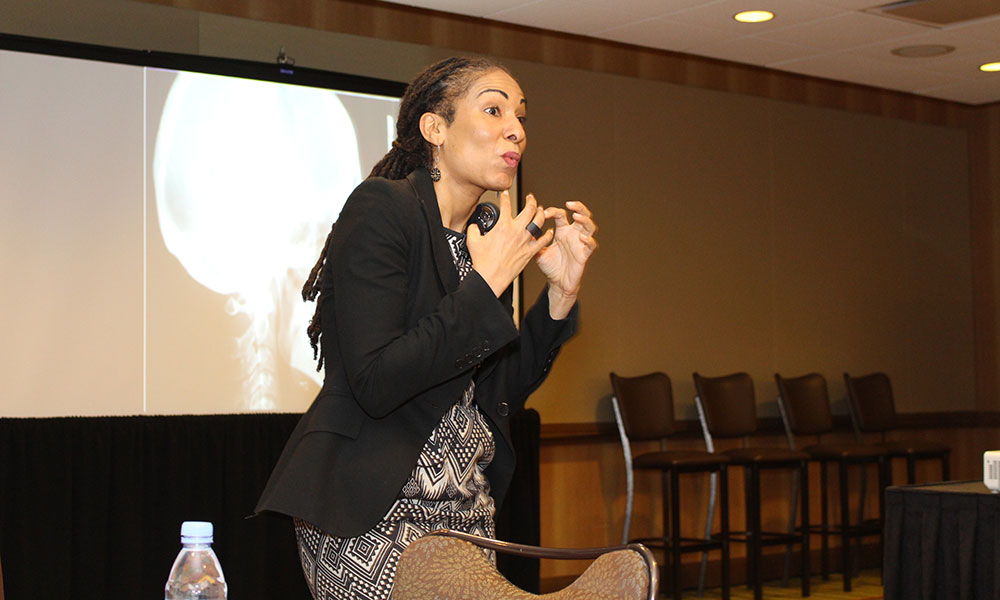
Women Execs Encouraged to Challenge Status Quo at #Ideas17
Ruha Benjamin, a professor and author, encouraged women executives at ASAE's 2017 Great Ideas Conference to challenge social norms and systems in order to build a more inclusive society.
More associations are introducing diversity and inclusion programs to ensure that staffers, members, and volunteer leaders represent a variety of backgrounds and perspectives. But correcting D&I issues may not happen by only working in the current system.
Instead, people and organizations need to work authentically to redesign the social system. That was a point made by Ruha Benjamin, assistant professor at Princeton University and author of People’s Science, during Monday evening’s Women Executives Forum, “Putting Women’s Ideas to Work—Authentic Ways to Hear and Be Heard,” held during ASAE’s 2017 Great Ideas Conference. And acting authentically, she said, starts with combating our social conditioning.
“A lot of the things that come naturally to us grow out of our conditioning—habits of behavior and thought that we actually don’t think very deeply about is what we do impulsively,” Benjamin said. “And actually to do things that are authentic requires more work; it requires more work to get past the conditioning.”
She encouraged attendees to ask themselves how their social and professional world is limited because of the social system they live in and because people tend to associate with others who are similar to them. By thinking and questioning this concept, Benjamin said leaders can grow their organizations, enhance the sharing of information, and create a new system. Here are some of her suggestions for challenging the status quo:
Authentic communication. When it comes to the social realm, people are slow to experiment with new ideas. But individuals can start to challenge that fact by working on themselves first, refusing to eliminate parts of themselves to fit a mold. But to include others in that change, they must communicate the mission clearly.
“We can’t recruit, we can’t attract a wide variety of humanity, if they don’t feel connected to the mission of what we’re doing,” Benjamin said. “It can’t be in name only; they have to care. And so partly what we want to do authentically is to be able to communicate why people should care about what we’re doing, what they have to get out of it.”
Organization design. Often, an organization’s products and services are designed in light of the social system. Because of this, they may often exclude certain populations and reinforce biases. But that can change when organizations “think very consciously about how we may be unwittingly designing for exuding exclusion into the process and how we can design this in a more participatory role so that it can benefit the vast majority,” she said.
Social technologies. Identifiers, like gender or race, can act as tools—or technologies, as Benjamin called them—to make things happen, largely because certain codes or prejudices are associated with them. But these prejudices can’t be overturned by a single program or campaign. Rather, it requires overcoming assumptions to develop new social norms and change the status quo. “So our efforts to embed new values into this system will require we work overtime with as much diligence as those who propagate tools of exclusion,” Benjamin said.
Code rewrites. In the current system, individuals will code switch, or change their behavior, based on their current contexts. Benjamin argues code switching simply reinforces the social system’s expectations. “But when we begin to rewrite codes, rather than simply code switch—that is play a game that’s been set by others—we can help to embed new values and new social relations in the world,” she said.
(Sabrina Kidwai, APR, CAE)






Comments